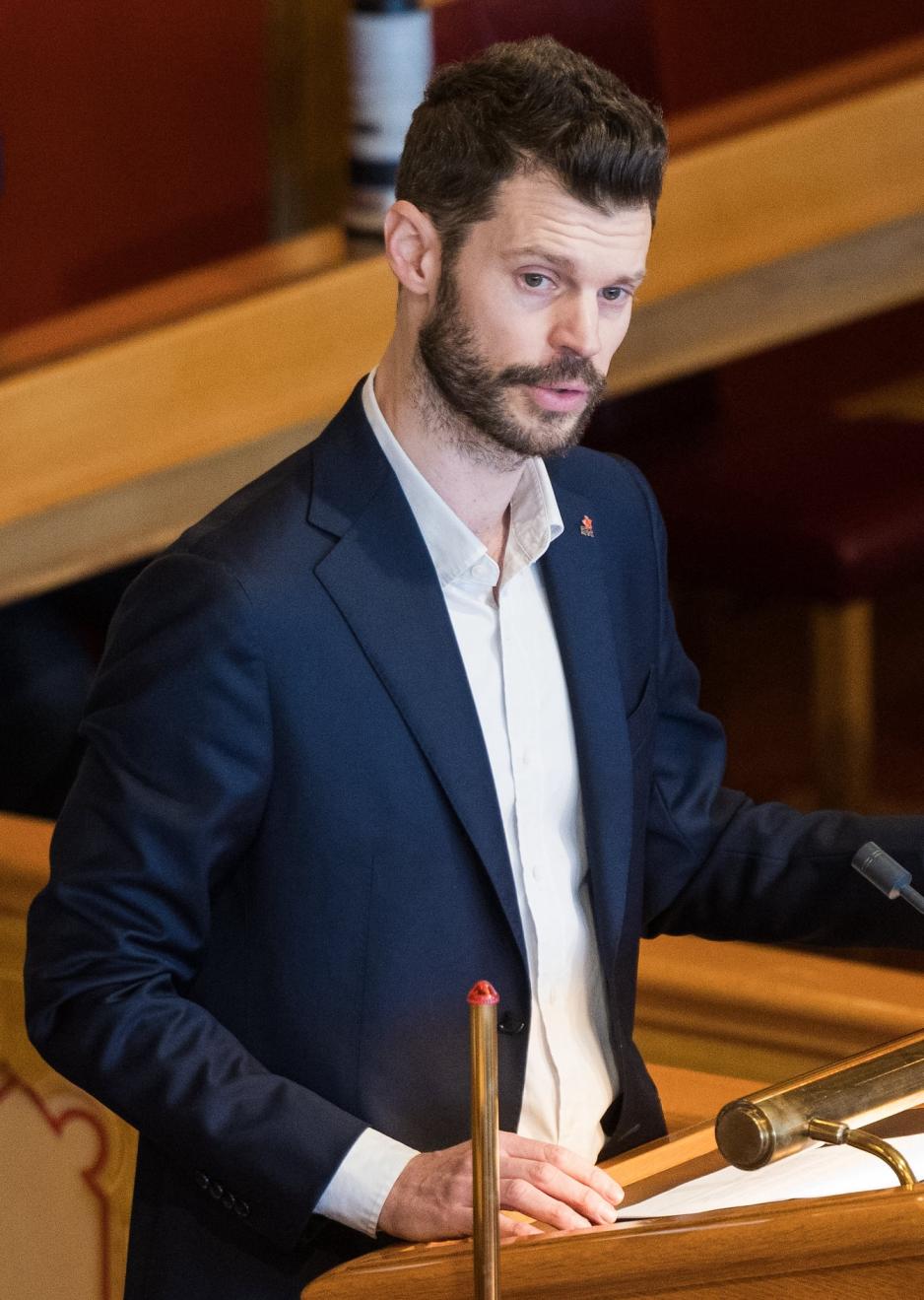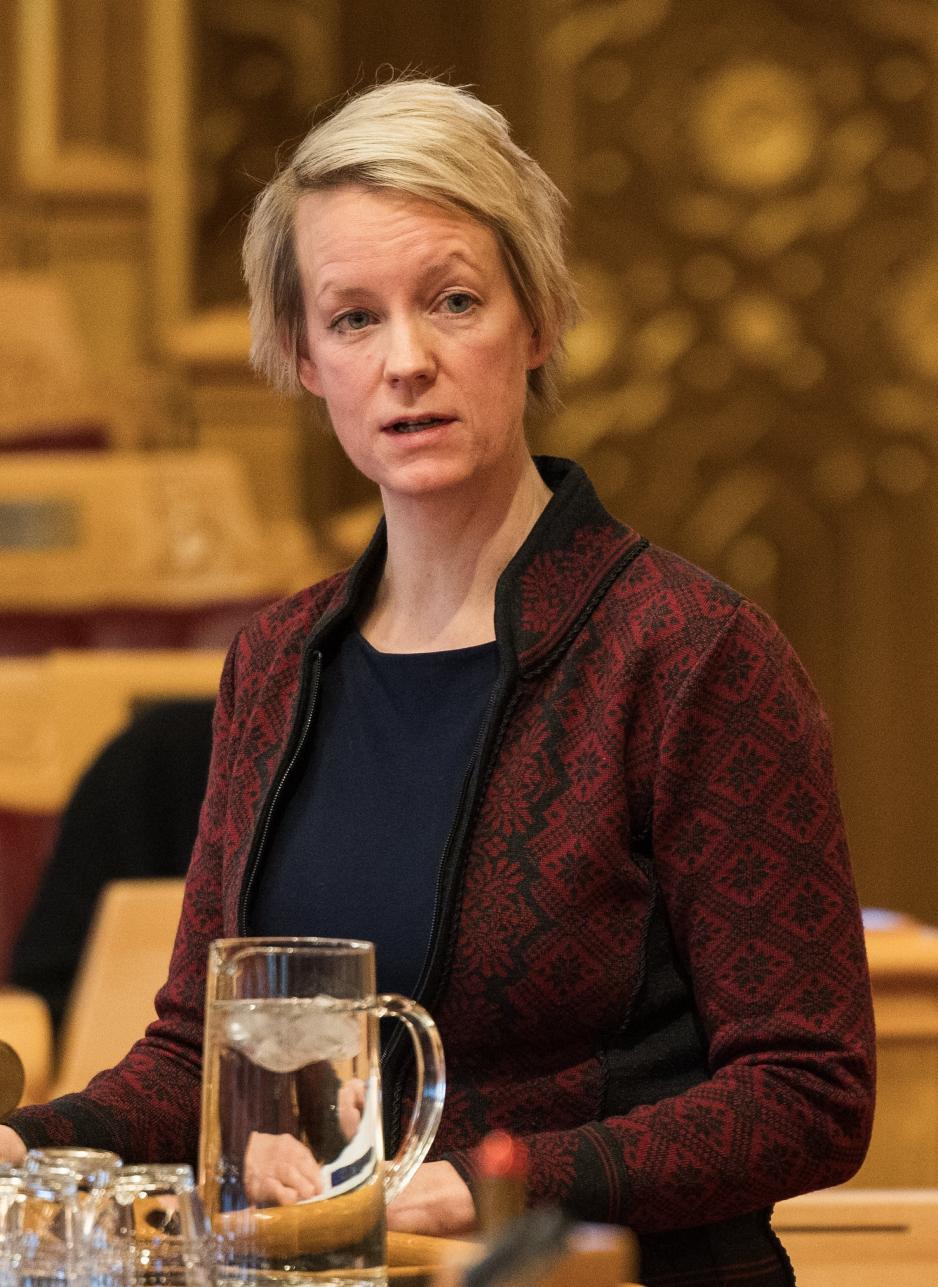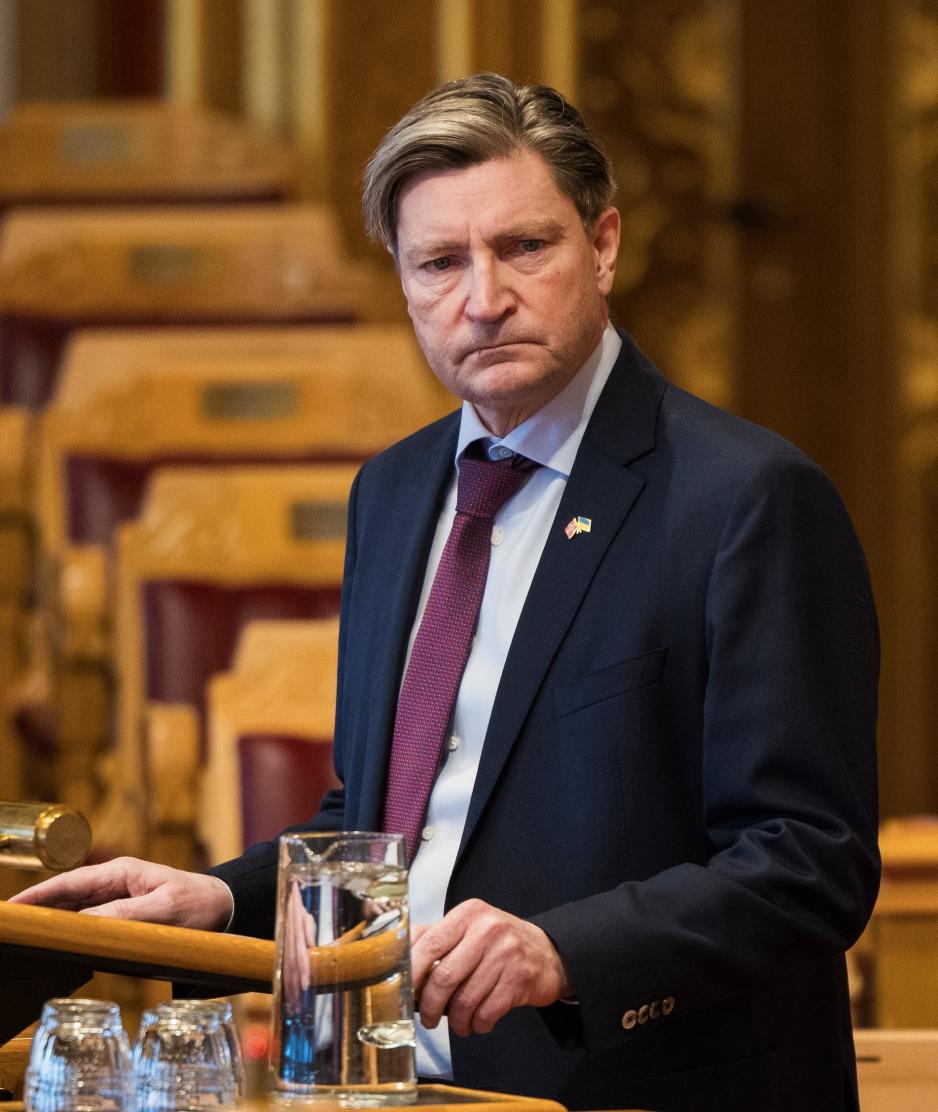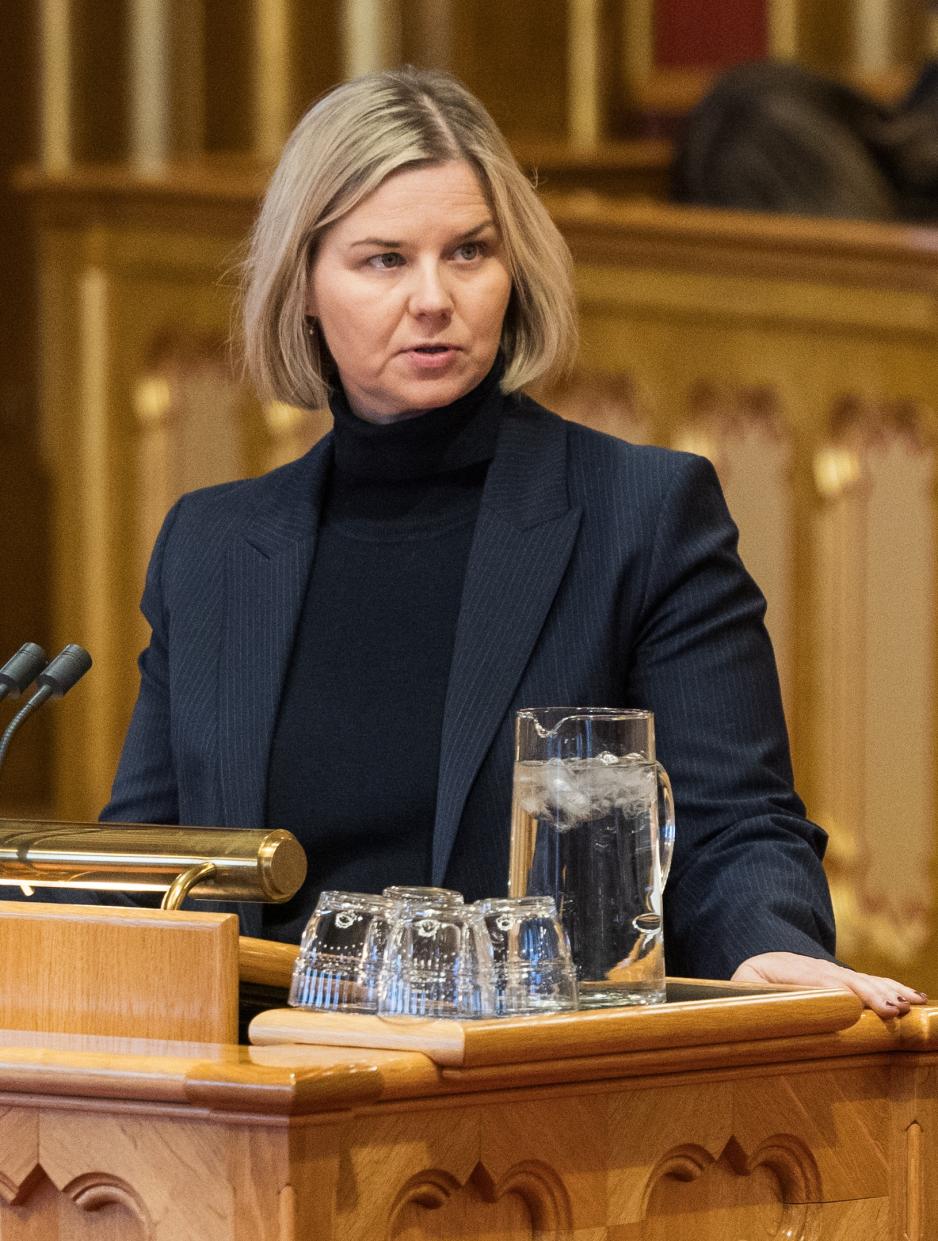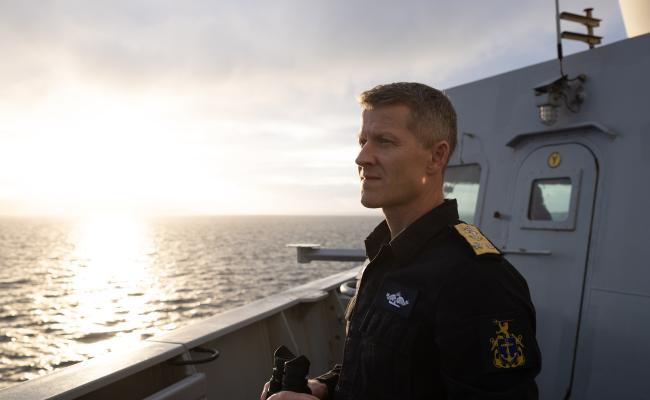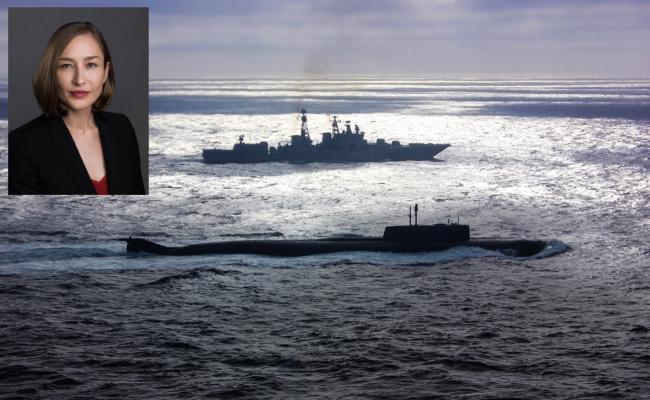Norway’s Parliament Unanimous on Major Defense Pledge: Seeks Lower Tension in the High North
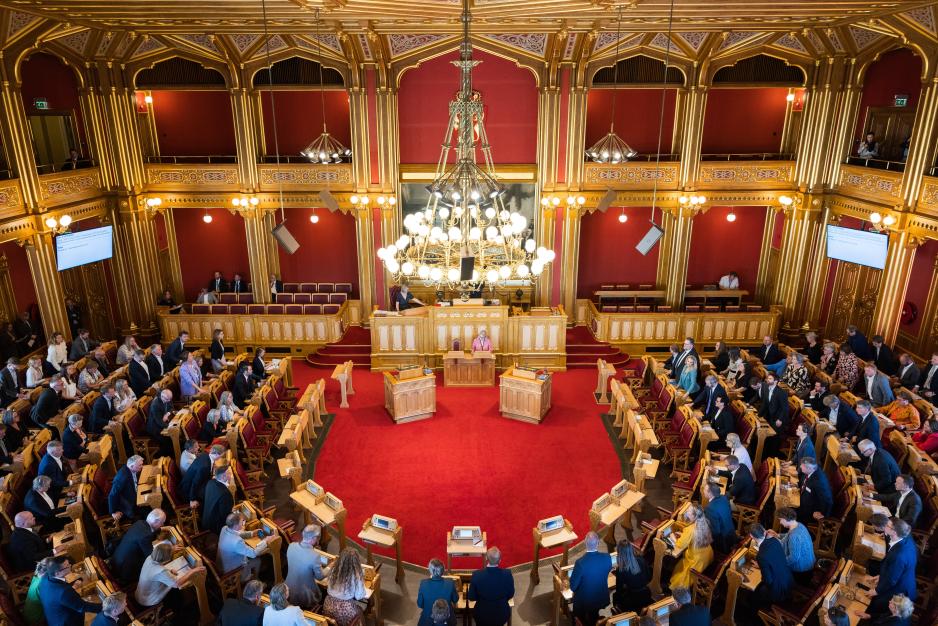
A broad political agreement for Norway's new long-term defense plan 2025-2036 has been reached through processing in parliament. Last week, the plan was adopted by the parliament in a plenary session. The settlement parties, Labour, Conservative, Centre, Progress, Socialist Left, Red, Liberal, Christian Democratic, and Green, emphasize the importance of this consensus and their joint commitment to realize the plan. (Photo: Peder Mydske/the Norwegian parliament)
In a historically broad defense settlement, the Norwegian parliament is clearly looking northward. "We must increase our ability to shape the development in the High North," states a united Standing Committee on Defense, looking to reduce the risk of misunderstandings, conflict and great power rivalry.
Last week, Norway's parliament unanimously adopted a new long-term plan for the Armed Forces. The plan's basis is the government's proposed defense pledge, supplemented with various strengthened measures and budget additions.
The agreement on the long-term defense plan is historic, as all nine political parties represented in parliament commit to implementing it.
The settlement increases the economic framework of the plan by NOK 11 billion. This entails a NOK 611 billion spending increase on defense for the next 12 years.
The Standing Committee on Foreign Affairs and Defense's united recommendation for the long-term plan clearly looks northward when addressing the security policy challenges and the justification for the settlement.
As a result of this recommendation, the parliament also provides the government with tasks and proposals for further measures. Several of which deal with or are relevant to Northern Norway and the High North.
The introduction to the committee's recommendation:
• "The committee, members of the Labour, Conservative, Centre, Progress, Socialist Left, Red, Liberal, and Christian Democratic parties, considers that Norway needs a credible and deterrent military defense at a time characterized by a security policy gravity we have not experienced in a very long time."
• "Securing Norway's freedom and independence and the safety of its citizens is a fundamentally important and timeless task. The committee refers to the increasing security policy challenges of our time, which will make it more demanding to solve this task. However, the committee emphasizes that it must be solved at all times, in peace, crisis, and war."
• Note that the Green Party is also part of the settlement.
Lower tension demands more
"The Standing Committee on Foreign Affairs and Defense emphasizes that Norway's security is highly affected by the level of tension in the High North. Our geographic location and our large ocean areas constitute timeless conditions for the security policy challenges," reads the unanimous recommendation.
"As a small state in a region where great powers perceive themselves to have conflicting interests, it is in our interest that the level of conflict is kept as low as possible. As the High North now becomes more strategically significant, due to geopolitical tensions and the melting of sea ice, the need to actively contribute to predictability and stability also increases."
Maintaining respect for international law is crucial to keeping the tension level down, the committee also points out and refers to it being in Norway's interest that international law is defended and enforced.
"At the same time, we must increase our ability to understand, influence, and shape the development in the High North. By being continuously present and asserting sovereignty, we help to reduce the risk of misunderstandings, conflict, and great power rivalry in the region. The strengthening of the national defense capabilities must be viewed against this backdrop," maintains the committee.
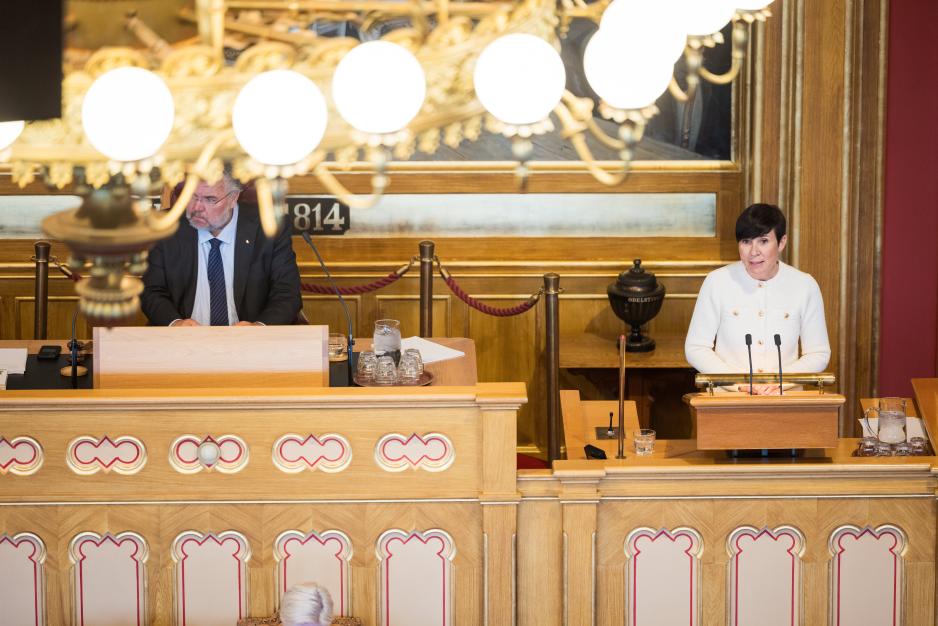
"The worsened security policy situation makes it completely necessary for long-term political commitment to ensure clear prioritization of the Armed Forces through shifting political majorities," says Ine Eriksen Søreide (Conservatives), Spokesperson of the Standing Committee on Foreign Affairs and Defense. (Photo: Peter Mydske/the Norwegian Armed Forces)
"Significant potential threat"
The contemporary security policy gravity is further discussed by the Standing Committee on Foreign Affairs and Defense, including the following statements:
"All professional bases for the long-term defense plan emphasize that the security policy situation is currently dire both regionally and globally and that it will persist or further deteriorate."
With this, the committee refers to reports from Norway's Defense Commission and Total Preparedness Commission, as well as professional advice from the Norwegian Chief of Defense and the National Security Authority.
"It is the committee's opinion that an increasingly more aggressive, hostile, and expansionist Russia with clear totalitarian features constitutes a significant threat to Norway and our allies. There are no clear signs that the development in our immediate areas will stabilize or improve in the near future. The risk of Russian use of force against Norway and our allies persists and will therefore remain the defining threat for the organization of the Armed Forces."
Pressure, 'conflict contagion,' and unintended escalation
Furthermore, the committee notes that Norway's military preparedness level has been raised since the fall of 2022 and also points to possible dangerous scenarios the country may encounter.
"The persisting high tension regionally and globally may increase the risk of conflict through, for example, the use of military power as a political pressure against Norway, the spread of regional conflict from other places to Norway's immediate areas, or individual episodes or misunderstandings getting out of control."
"The committee refers to how conflict below the threshold of NATO's Article 5 is also a highly relevant scenario, and that the further strengthening of the Armed Forces must also be geared toward managing this type of threats."
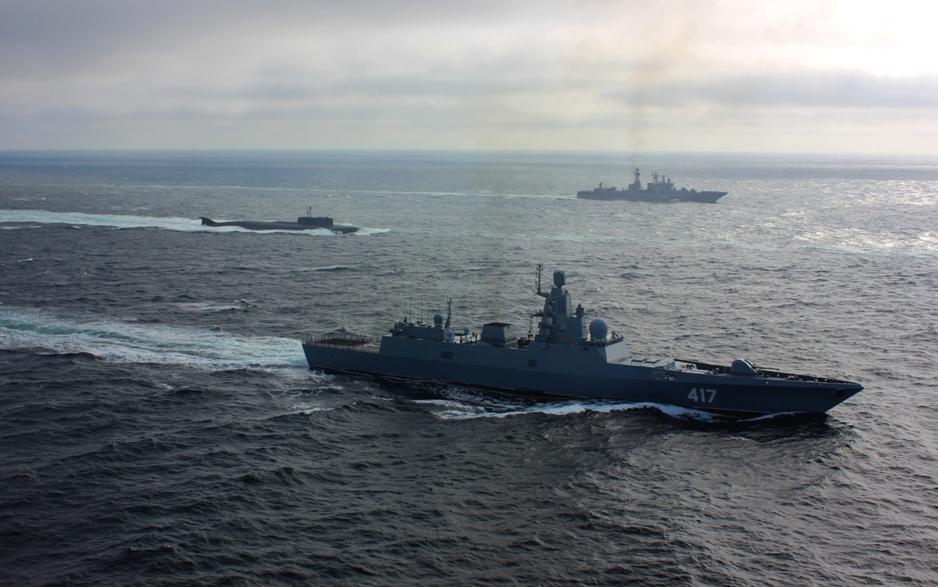
Here, one of the Russian Northern Fleet's submarines is followed by the frigate Admiral Gorshkov and the destroyer Severomorsk in northern waters. (Photo: the Russian Ministry of Defense)
Norway's room for action
The committee's recommendation from the also shows that the political parties in parliament are concerned with improving Norway's military capabilities to protect and strengthen the country's political room for action.
"The committee emphasizes that enhanced national capability strengthens the prerequisites for more national independence and makes Norway better equipped to protect the it's population, democracy, self-government, territorial integrity, and resources."
This is not least topical in the High North, which is getting increasingly militarily significant to both Russia and NATO allies.
Crucial prevention
The committee points out that Norway's opportunity to exert influence and conduct independent measures is also greatest in the lower parts of the conflict spectrum – and believes that defense efforts must primarily be directed at preventing and counteracting conflict.
"It is crucial to contribute to preventing and deterring the use of force against Norwegian strategic interests. This way, Norwegian authorities can prevent further escalation to levels where our national freedom of action and influence is significantly reduced."
Enhancing Norwegian defense capacity is also about accepting a greater responsibility within the framework of NATO, where burden-sharing has gained and may gain even greater significance, as well as being able to reinforce allied nations, such as Finland and Sweden, reads the recommendation.
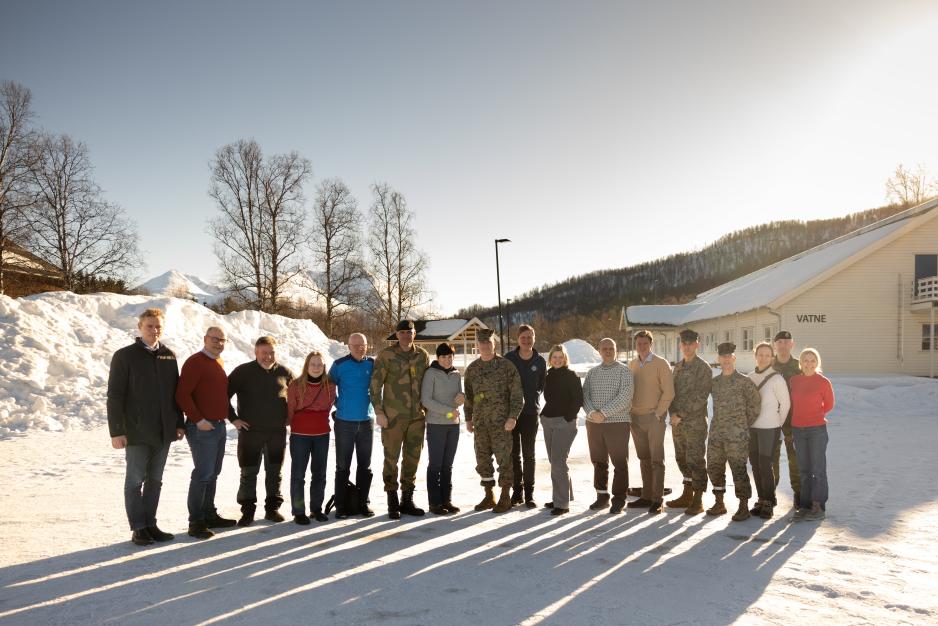
Members of the Standing Committee on Foreign Affairs and Defense visiting Brigade Nord, the only brigade of the Norwegian Army, in Inner Troms, Northern Norway. This was during the winter's large-scale military exercise Nordic Response, which took place across the northern parts of Norway, Sweden, and Finland. (Photo: Sander Riis Eilertsen/the Norwegian parliament)
The committee on nuclear weapons:
"The committee emphasize that the long-term plan will strengthen the Armed Forces' ability to secure Norwegian sovereignty with conventional means, in line with Norway's long-term interest of low tension in the North and nuclear de-escalation, as well as the parliament's decision to actively work for a world free of nuclear weapons. Norway's view on storing nuclear weapons on Norwegian territory in peacetime is set."
An outside perspective on the extensive agreement
"There has always been opposition to the security policy in Norway. That is gone now," writes Aslak Bonde in a Morgenbladet commentary on the agreement that will apply for 12 years on the Armed Forces' long-term plan.
Bonde points to how the Socialist Left and the Red Party have traditionally promoted security policy views that differ from the other parties – and that they, on May 30th, voted against giving the US unimpeded access to several new military areas on Norwegian soil, including in the North.
"Paradoxically, the USA criticism contributed to the Socialist Left and Red Party agreeing with the other parties on aiming at a nearly tripled defense budget. To be less dependent on US support, we must build up the national defense," he points out.
Bonde's main argument is that possible voices of protest in the Norwegian population who already, or perhaps in a few years, believe that Norway is spending more money on the military than necessary, will not be represented in parliament.
Highlights the territorial defense
"It might surprise some that the Red party is part of the settlement since we are a foreign policy opposition. At the same time, Red is a defense party. We have been at the forefront of criticism of the downsizing of the national territorial defense," states Bjørnar Moxnes (R), a Standing Committee on Foreign Affairs and Defense member.
"If Norway does not assert sovereignty and is present with our own military forces on land, at sea, and in the air, that vacuum will be filled by someone else, and the risk of great power rivalry will increase in our immediate areas. This is the complete opposite of what is in Norway's interests, which is low tension in the High North," continues Moxnes.
"Peace policy in practice"
Ingrid Fiskaa, a member of the same committee from the Socialist Left, highlights similar aspects.
"A strengthened national capability will contribute to low tension in our immediate areas. By being present and asserting sovereignty, we reduce great power rivalry and the potential for larger conflicts. For the Socialist Left, this is the main reason for being part of an extensive defense settlement. Together with other parts of our foreign and security policy, this is peace policy in practice. The Socialist Left continues to work for international disarmament, diplomacy, consistent enforcement of international law, and to prevent the causes of war and conflict," she maintains.
Will be demanding
"We should all be happy that a united parliament wants to invest so heavily in defense. Today's security policy situation has awakened even those most critical to rearmament to understand the severity," says Christian Tybring-Gjedde, a member of the Standing Committee on Foreign Affairs and Defense from the Progress Party.
"As a nation, we will now have to spend much more of our resources securing the country. In that regard, it is important that the Norwegian defense industry is partial and receives opportunities. The big debates in the time coming will be about where the money will come from and all political parties must prepare for some tough prioritization in the coming years," continues Tybring-Gjedde.
The committee jointly points out that realizing the defense plan will be challenging and also depends on the population's long-term legitimacy.
At the same time, the members reiterate the notion that strengthening defense ability in the short, medium, and long term is essential. The plan must also support increased resilience and preparedness throughout society, they believe.
Emphasizes progress
"This plan is no breather. It is a joint commitment that will likely require more of us than most other things we do," maintains Guri Melby, leader of the Liberal Party and member of the same committee.
"Any future government, regardless of party color, must keep looking forward, but also to what can be done now. The government must come back to the parliament if there are things that can be accelerated, that can be implemented more quickly. Because Russia is rapidly rearming, and we must constantly check that we are working quickly enough," emphasizes Melby.



